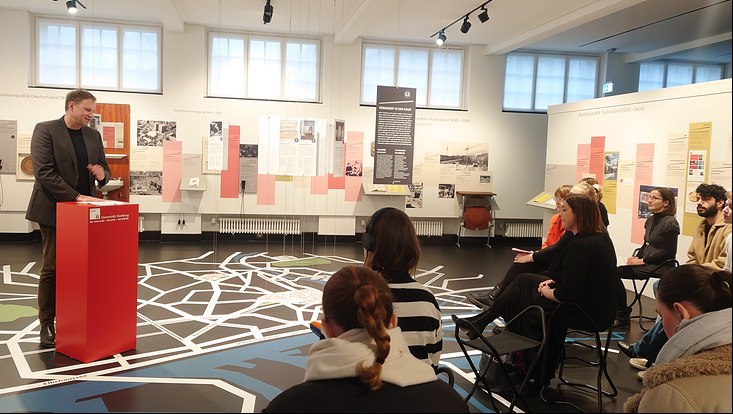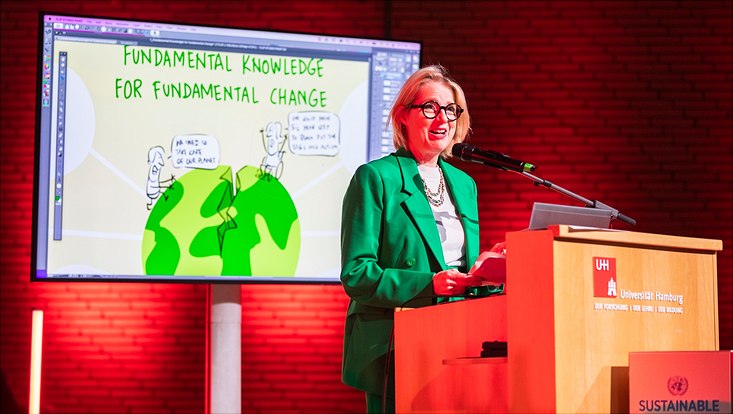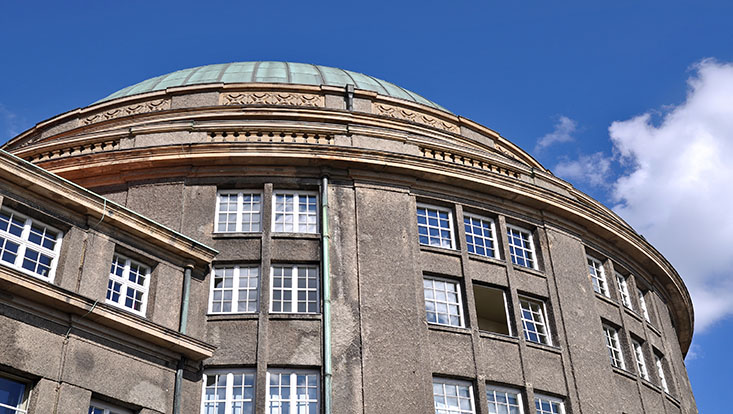Help for researchers and studentsAssistance Programs UHHhilft and Hamburg Programme for Scholars at Risk Extended to 2025
13 December 2023, by Newsroom editorial office

Photo: Universität Hamburg
Universität Hamburg’s assistance programs UHHhilft and the Hamburg Programme for Scholars at Risk offer rapid and unbureaucratic help to researchers and students prevented from continuing their studies or their academic career because they have had to flee or have been expelled from their country. Although many have received assistance, there are still many refugee students and researchers who need support. The Ministry of Science, Research, Equalities and Districts has ensured funding for the programs to continue operations for the next 2 years.
The UHHhilft program has been running since 2015 and aims to improve university access for refugee students. The project's core funding from the German Academic Exchange Service (DAAD) runs out at the end of 2023. The Ministry of Science, Research, Equalities and Districts has made 100,000 Euro available per year to continue the assistance program through 2024 and 2025. UHHhilft offers subject-specific preparatory classes, language courses, mentoring, and advice programs for refugees. Around 250 people have actively taken part per semester since Winter Semester 2022/2023. In comparison with previous semesters, the number of participants has grown by 100 people. The proportion of students supported by UHHhilft who successfully apply to Universität Hamburg and then go on to enroll and commence their studies is higher than that of international students in general. Students registered with the UHHhilft program come from a range of countries. These include Morocco, Nigeria, Iran, Ukraine, and Syria.
Since 2019, the Hamburg Programme for Scholars at Risk has been providing researchers forced to flee with grants of up to 2,000 Euro per month for a period of 1–12 months to stay in Hamburg. The Ministry of Science, Research, Equalities and Districts initially provided funding of 100,000 Euro for the project, and provided a sum of the same amount for refugee researchers from Ukraine in 2022 as part of the Science Bridge for Ukraine. The program will receive an additional 125,000 Euro by 2025. In total, funding has been provided to 30 recipients (18 from the Ukraine) conducting research at Universität Hamburg, the Hamburg University of Applied Sciences and the University of Fine Arts of Hamburg.
Prof. Dr. Hauke Heekeren, president of Universität Hamburg explained: “Global volatility has an effect on academia and universities. As a flagship university, we see it as our responsibility to support students and researchers affected by complex crises. We want to continue using UHHhilft and the Hamburg Programme for Scholars at Risk to provide support quickly and easily into the future. Both programs have been successful, and delivering long-term benefits. UHHhilft in particular has shown above-average benefits in terms of international student entrance rates. I am grateful for the many dedicated Universität Hamburg staff who welcome new members, and help them find their way, whether in Hamburg or elsewhere.”
Science senator Katharina Fegebank added: “Education is the basis of personal development and participation. Academic freedom is key to social prosperity. Particularly in times of ongoing and increasing crisis, we need to protect education and academic freedom. Universität Hamburg has shouldered this responsibility for many years. The two pilot projects UHHhilft and the Hamburg Programme for Scholars at Risk provide support to individuals who have had to flee or are facing persecution. It is important that people with refugee backgrounds can connect with us as quickly as possible. These two assistance programs are a brilliant example of how that can work. I am very happy that we have been able to secure funding for 2023 and 2025, so we can continue writing the next chapters of this success story and this important work at Universität Hamburg. I would like to sincerely thank everyone involved in the project, and the dedicated students and researchers.”


